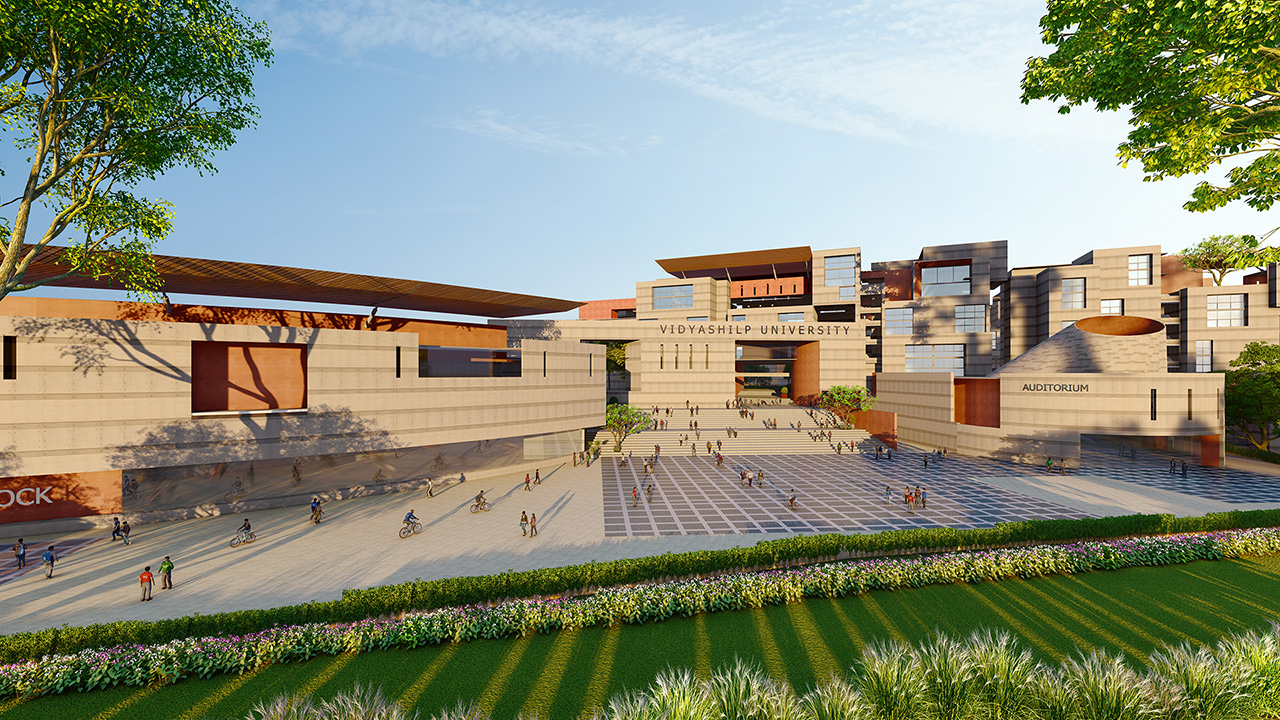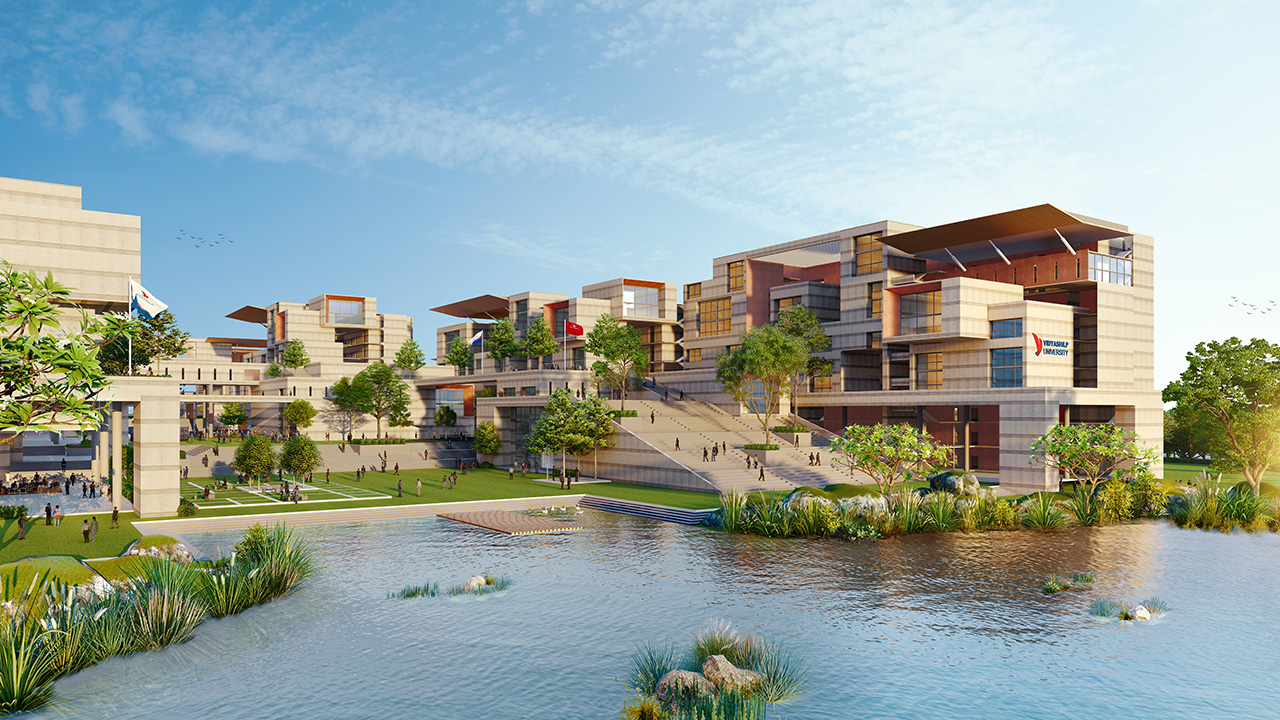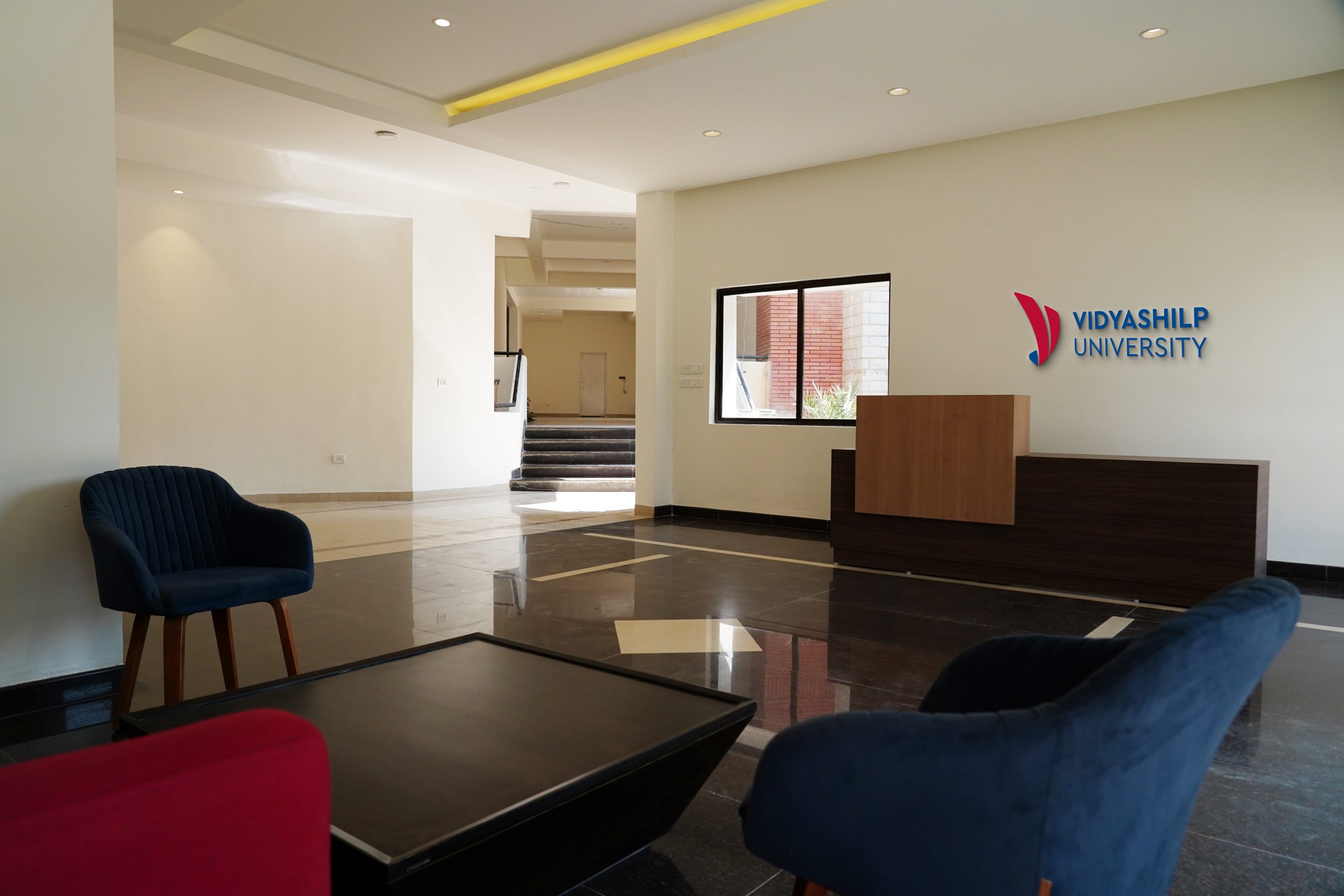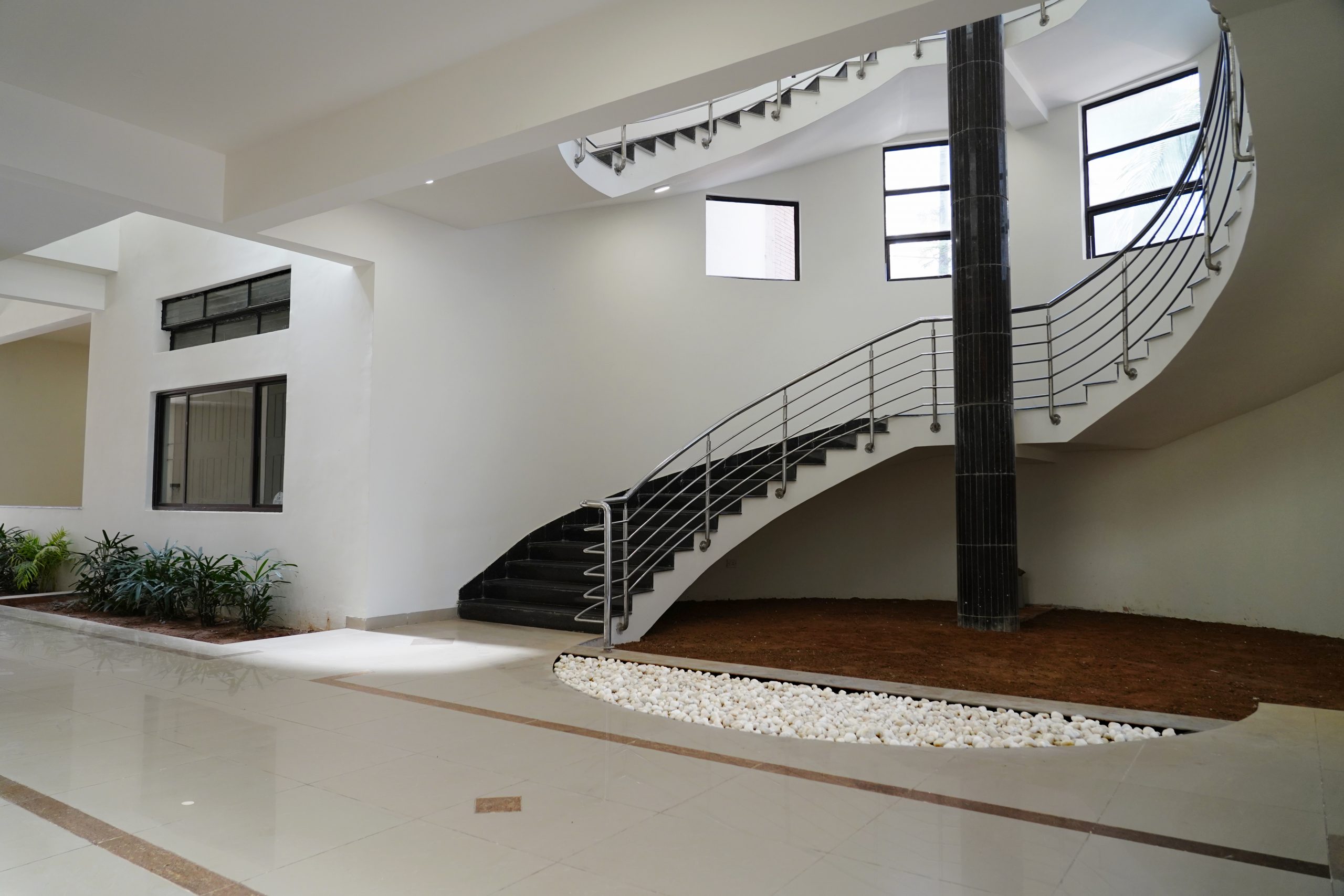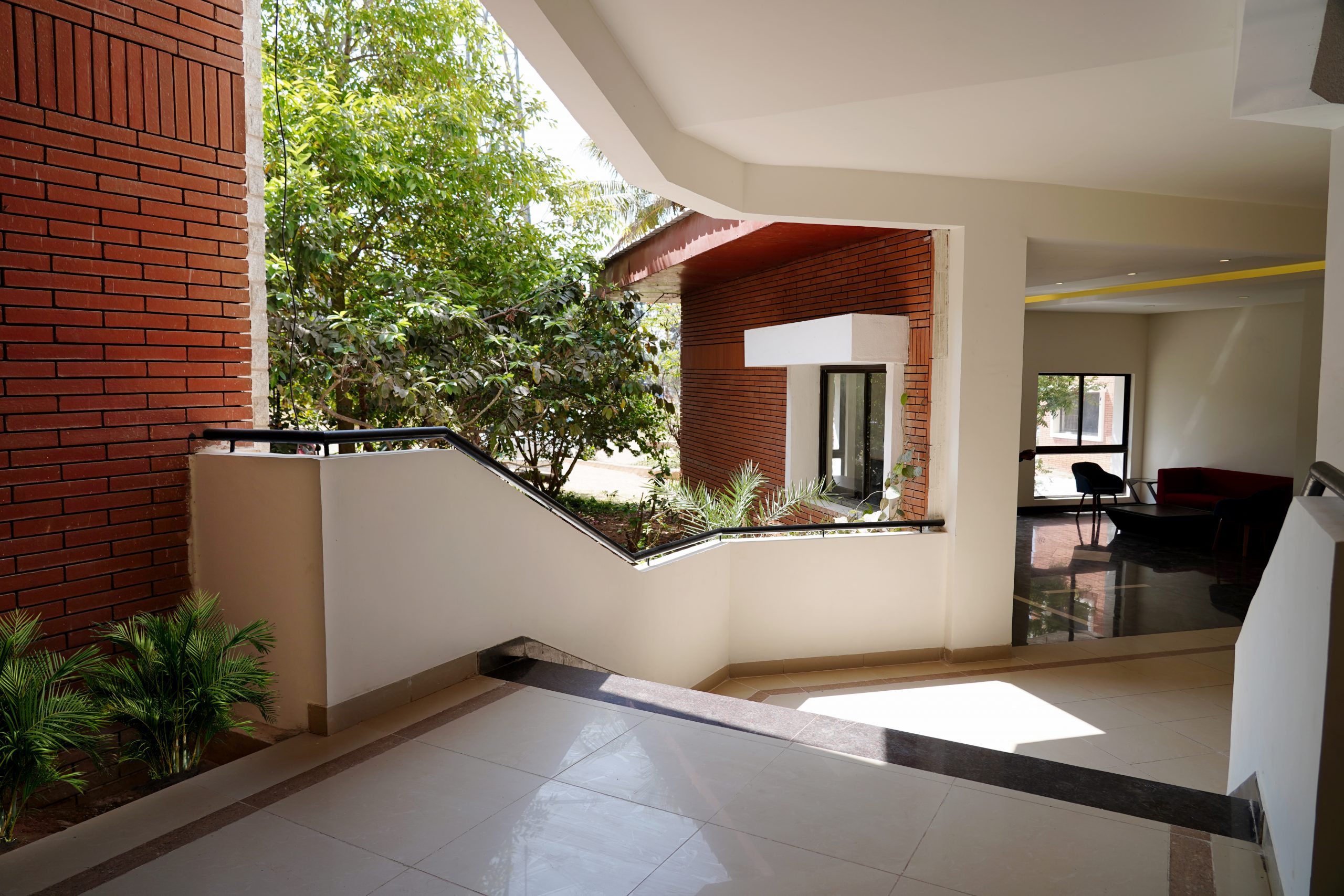B.M.S, LL.B (Hons)
– Bachelor of Management Studies, Bachelor of Laws (Hons)
*BCI Approved vide BCI Notification BCI: D: 755: 2023 (LE / Std: 27.05.2023) dated 17.06.2023
The 5-Year Integrated (UG) Law Program was conceived by the (Late) Padma Bhushan Prof NR Madhava Menon who pioneered a new model of legal education. This is now a widely acclaimed model for legal education. The 5-year Law Program at Vidyashilp University provides a multidisciplinary education integrated with both foundational and emerging domains of law, with a progressive curriculum for modern legal scholarship.
Learning for an Innovative Economy
Established in the heart of Bengaluru, Vidyashilp University and innovation go together. To empower students to think differently, VU promotes specific focus areas that will help students emerge as change-makers in a fast-evolving globalized society. These focus areas include diverse opportunities and challenges in Intellectual Property and Technology Law, a significant domain of law, internationally. It also places critical emphasis on Alternative Dispute Resolution (ADR) and Online Dispute Resolution (ODR). These areas or domains of law reimagine ‘dispute resolution from a courtroom’ to ‘a service that can be collaborative and availed from anywhere’.
With an aim to advance the frontiers of legal education and research in India, the program will help cultivate a new generation of lawyers who are equipped with cutting-edge knowledge, skills, and values for serving their clients in a changing world.
Program Structure
5 YEARS
10 SEMESTERS
216 CREDITS
- Essentials of Business Management
- Organizational Behavior and Design
- Indian Society and Culture
- Introduction to Statistics and Data Analysis
- Computational Thinking
- Strategy & Decision Making
- Marketing Management
- Financial Accounting and Analysis
- Financial Institutions, Markets, and services
- Financial Statement Analysis
- Globalization: Economic and Social Perspectives
- Microeconomics
- Macroeconomics and Indian Economy
- Critical Thinking
- Visualization for Story Telling
- Introduction to Psychology
- Communication skills
- Problem Solving with Design Thinking
- Leadership and Teamwork Skills
- Learning to Learn
- Introduction to Digital World
- Community Engagement and Service Experience
- Introduction to Writing
- Academic Writing
- Legal English
- Legal Methods
- Jurisprudence
- Law of Contract
- Special Contract/ Commercial Agreements
- Law of Tort including MV Accident and Consumer Protection Laws
- Family Law I
- Family Law II
- Law of Crimes Paper I: Penal Code
- Law of Crime Paper II: Criminal Procedure Code
- Constitutional Law I
- Constitutional Law II
- Transfer of Property Law
- Law of Evidence
- Civil Procedure Code and Limitation Act
- Administrative Law
- Company Law
- Public International Law
- Principles of Taxation Law
- Environmental Law
- Labor and Industrial Law I
- Labor and Industrial Law II
- Drafting, Pleading and Conveyance
- Professional Ethics and Professional Accounting System
- Alternate Dispute Resolution
- Moot Court Exercise and Internship
- Law Elective 1
- Law Elective 2
- Law Elective 3
- Law Elective 4
- Law Elective 5
- Law Elective 6
*As per BCI Norms:
- Freedom to University: University may restrict Groups and/or Courses in a Group for offering options based on the availability of faculty and other facilities
- University is free to take only a few common options for the purpose of the Honors Program without any specialization
- University may add to the above list of Courses as well as a New Group of specializations with such Courses as may be stipulated from time to time
- Interpretation of Statutes and Judicial Process
- IPR Management
- Information Technology
- Copyright
- Right to Information
- IPR in SMEs
- Patent Right Creation and Registration
- Trademark and Design
*As per BCI Norms:
- Freedom to University: University may restrict Groups and/or Courses in a Group for offering options based on the availability of faculty and other facilities
- University is free to take only a few common options for the purpose of the Honors Program without any specialization
- University may add to the above list of Courses as well as a New Group of specializations with such Courses as may be stipulated from time to time
As per BCI Norms for all Integrated Five-Year Courses:
- There shall be a minimum of 14 Discipline Courses with a minimum of 3 subjects (Streams/Areas). In addition, there shall be 2 compulsory English Courses
- In the Core Legal Education Component, there are 20 prescribed compulsory Courses and 4 compulsory Clinical Courses
- There shall be at least 6 Elective (Law) Courses. In addition, for the Honors Program, there shall be at least 8 (Law) Courses
- Vidyashilp has fused the “VU Core” with the Discipline and English Courses to construct a curriculum aimed to produce legal graduates with depth in legal studies and committed to citizenship
Mandatory Externships
The Externship Program enables students to gain legal experience beyond that available in the classroom setting, by working under the supervision of legal functionaries in a governmental or non-profit setting.
Every Law student at Vidyashilp University will need to undergo a minimum of 20 weeks externship during the entire period of the Program. Externships can be with:
- Trial and Appellate Advocates*
- Judiciary
- Legal Regulatory authorities
- Legislatures and Parliament
- Market Institutions
- Law Firms, Companies
- Local Self Government
- NGOs
- Media Organizations
- Other bodies as the University shall stipulate, where law is practiced either in action or in dispute resolution or in management.
Students must complete at least one Externship with Trial and Appellate Advocates.
Legal Career Paths
The changing nature of the legal profession is creating unprecedented demand for qualified lawyers who can offer their services in innovative ways. This had led to a myriad of new career opportunities for law graduates.
Indian Judiciary is the structured system for the proper implementation of law and administration of justice in the society. Judicial Services Exam, popularly known as the PCS (J) — Provincial Civil Service-Judicial Exam is entry-level tests for law graduates to become a member of the subordinate judiciary. The Judicial Services have two entry levels. The first is for fresh graduates through an entrance exam conducted yearly by the respective State Public Service Commissions. The second avenue through which one may join the judicial service is known as the Higher Judicial Service (HJS). This service is open for lawyers with a certain prescribed minimum year of litigating practice, usually seven.
Advocacy is one of the most sought-after careers for Law graduates to choose from. Graduates who choose this pathway get the opportunity to practice in the District Court, High Court of the State, and the Central Supreme Court. But it is important for aspirants to clear the All-India Bar Council examination and enroll with the State Bar Council in order to qualify to practice law in court.
Additionally, while Public Service is part of every legal career, one can practice law at the highest levels across the Private Sector—from global law firms and corporations to start-ups and boutiques.
Further, these alternative career paths offer opportunities to specialize in niche services that grow their audience each day. A few examples of new career avenues for law graduates are:
Legal Design involves the application of design thinking to legal services. The goal of legal design is to help create more accessible, usable, and customer-centric legal systems and services. A legal designer will need to rethink delivering legal services in the most client-focused way. There is the need to redesign the legal services of a law firm or law practice to meet the needs of its clients. The crux of legal design as a law career in India is to be able to identify and design legal products and services that simplify the lives of people that use them. It also includes creating solutions that help the clients and improve the way legal service is delivered
The roles and responsibilities of in-house General Counsels and their teams are changing rapidly. Unprecedented market and regulatory conditions demand new technology that simplifies legal processes and cuts down operational costs. This demand has created the role of a legal technologist. This career arc involves developing technology solutions that can easily address the legal problems being faced by the business. Legal technologists collaborate with legal process designers to employ the right technologies that greatly speed up the delivery of repetitive tasks. This law career in India brings the best of the legal and technology worlds for creating more cost-efficient and productivity-driven legal tech solutions.
With the emerging technology and digitalization, cybersquatting has become a common practice in today’s era. To curb the same, cyber law is an emerging practice in India. Cyber lawyers deal with cases of cybercrimes against an individual, company or government. A cyber lawyer should be aware of internet activities and should have knowledge of the latest technology like cryptocurrency, cybersecurity etc. Cyberlaw also includes e-commerce, e-contracts and digital signatures, intellectual property rights, cybersecurity, etc.
Alternate Dispute Resolution is a mechanism where the parties in dispute come to a solution peacefully. It can be a matter involving a dispute of civil, criminal, matrimonial or corporate nature. Since the advent of ADR as a dispute resolution mechanism, it has played a very crucial role in reducing the number of court cases in India. ADR is appealing as it is cost-effective, less time-consuming, no fear of court, an efficient mechanism and preserves the best interest of the parties.
Legal audits in simple terms mean checking the position or health of the business in terms of legal compliances. Legal audits include reviewing contracts, agreements, documents, legal compliances, and conducting IP audits. Legal audits help in reducing legal disputes and hurdles and are important for risk management. Legal audit lawyers are highly required and preferred by MNCs and Corporate firms.
Legal Process Management (LPM) involves the identification, optimization, and continual management of processes involved in the day-to-day legal operations of an organization. LPM applies continuous improvement and change management principles to legal processes, maximizing both the micro- and macro-effects of those changes with the end goal of providing greater value to the client. LPM is increasingly becoming the global standard for excellence in legal service delivery models. A Legal Process Manager helps design, conceptualize, implement, monitor, and improve such processes.
Legal Studies and Research offers significant challenges to explore formulation of law and policy in many emerging areas, for instance Artificial Intelligence, Climate Change, Cyber Terrorism, etc. Vidyashilp University is committed to provide support and resources to graduates keen on exploring careers in Legal Academia.
Eligibility
An applicant who has successfully completed Senior Secondary School course (10+2) or equivalent, or (11+1) ‘A’ level in Senior School Leaving certificate course from a recognized Board in India or abroad.
Minimum marks in qualifying examination for admission
Minimum percentage of marks in the qualifying or higher examination for General Category shall be 45% and for SC/ST 40%.
Other details
- Students who have appeared & cleared any one of the National Level Law Entrance Examination viz., CLAT/LSAT/AILET shall be given preference.
- Students are required to appear for Personal Interview conducted by the University.






